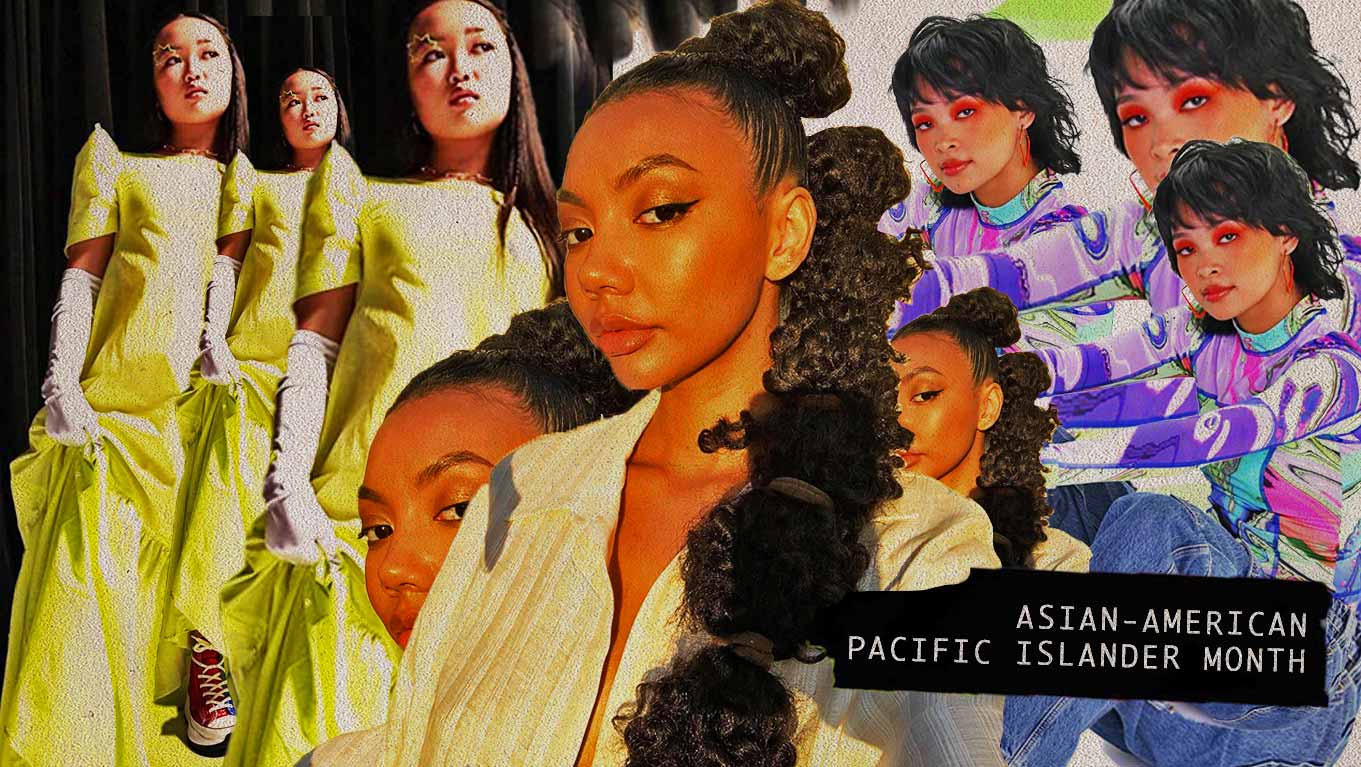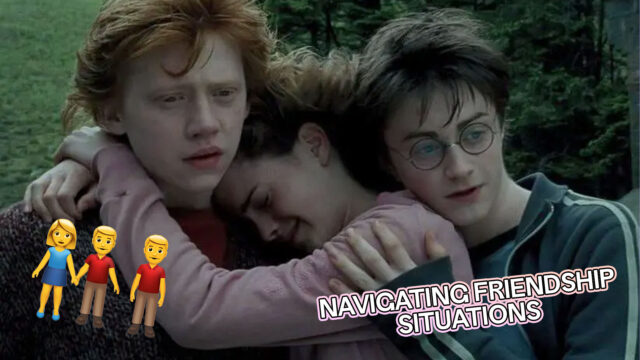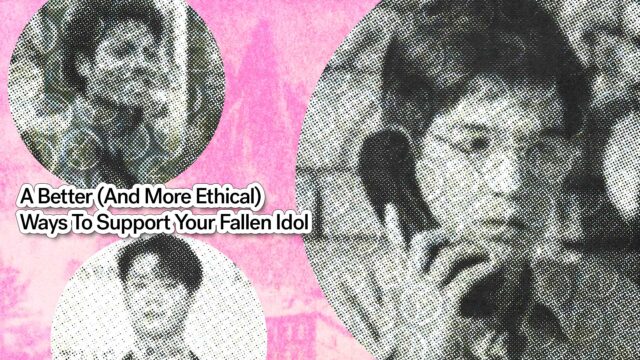From Olivia Rodrigo to Jacob Batalon, HER to Darren Criss; Filipino-Americans have been making waves in the industry. They’re front-lining music charts, and starring in some of the biggest cinematic crossovers to date. And with the ever-looming presence of anti-AAPI sentiment all across the western world, their presence within the spotlight and the platforms they’ve been provided is more important now than ever.
But the biggest names aren’t the only ones that matter. There are Filipino voices ringing all across the so-called industry, taking up space and representing. And even as Asian American and Pacific Islander Heritage Month comes to a slow close, it is never too late to appreciate and give love to these Filipino-Americans opening doors and opportunities for those coming after.
We have behind-the-scenes magic-makers responsible for all the fancy red carpets and film festival events. We’ve got influencers, up-and-coming music artists, and children of Hollywood veterans. We even get to talk to an anime enthusiast and voice actor, reminding us Filipinos that one of the biggest staples of Filipino entertainment and obsession can be more than just that—it can be a career, a dream within your reach, too. But more than anything, we’ve got people who have a lot to say about their Filipino heritage and their Asian American experience.
Related: We Asked 4 Filipinos Who Grew Up Abroad What’s The Worst Thing A Non-Asian Has Ever Said To Them
Asia Jackson
I’ve been thinking about summing up the Asian American experience, and I can’t actually—I think it’s impossible.
Asia Jackson is an actress and influencer best known for creating the #MagandangMorenx movement on Twitter. This hashtag centers around the celebration of brown skin in the Philippines, a stand against the colorism prevalent within the Filipino community. Asia is Afro-Filipino; her mom is indigenous–Igorot from Baguio–and wanted her and her brother to stay very connected to their culture. Despite her military background and constant movement from place to place, she visits Baguio every other year and has been heavily exposed to her indigeneity. Most of her favorite memories to do with the Filipino side of herself is celebrating Cañao in the Cordilleras mountains.
Growing up, she felt out of place and went through an identity crisis. “A lot of mixed people have always talked about not feeling this enough, or not feeling that enough,” she says. But, as she started exploring her identity and embracing it, things got a lot better for her. Still, her Afro-Filipino make-up is prone to the effects of colorism, whether it be for the positive or the negatives; as a light-skin black woman, she actually benefits from colorism, but in Asian communities she’s considered dark.
Because of this, finding acting roles authentic to herself is trying. From her experience, most mixed people who are Black in Hollywood are mixed with White, so any other race mixed with Black are not represented accurately, if at all. “I think in all the 800 auditions I’ve done in my career, I’ve only auditioned for one character that was specifically Black and Asian,” she says. While she herself has not personally experienced anti-AAPI sentiment as she is not visibly Asian to the western perception of the race, tension still remains. She especially worries for her mom–who has to wear baggy clothes, big hats, masks and sunglasses–who has to hide her Asian appearance just to go on walks.
A message to fellow Filipinos in the Philippines with family abroad: “Being connected to what’s going on, and having conversations with your parents and your family is really important. I think it’s important for everyone to know that they have support, and that they have people looking out for them, because for a lot of immigrant communities, when you migrate to other places, you feel very isolated, and very alone. So, I think it’s really important to stay connected to your community, and with your family.”
A message to fellow Filipino-Americans trying to just strive and survive: “I think it’s really important to stay on top of your mental health. All parts of your health are connected; mental health and physical health are absolutely connected. And I know that in a lot of Filipino, or a lot of Asian communities, mental health is something that’s very stigmatized. Just because of the way our parents grew up, and the way our grandparents grew up. If you’re not feeling the way you should be feeling, it’s okay to seek help. If you’re trying to strive and survive, you have to be all of that.”
Dawn M. Bennett

“On this battlefield man has no better weapon than his intelligence, no other force than his heart.” –José Rizal
Dawn M. Bennett is a voice actor and music director. Her most notable English dub work include Kale from Dragon Ball Super, Frosch from Fairy Tail, Frederica Baumann in Re:Zero, and Frieda Reiss in Attack on Titan. She got her first job as a voice actor as Frosch a month after she graduated from Berklee College of Music. Dawn grew up in Texas, away from most of her Filipino family in California. Therefore, she never got to learn the language at length. Still, her mother with that love for singing, joined multiple Filipino groups and choirs in Dallas which she’d often tag along to. Because of that, she got to go to Filipino festivals and Philippine Republic Day celebrations.
While Dawn didn’t get to celebrate many Filipino traditions growing up, she has a lot of fond memories of her Filipino side. “Watching my grandmother eat halo-halo despite being very diabetic, seeing tinikling performers completely nail the dance without tripping, which is insanely awesome, having parties devolve into non-stop karaoke as the night went on, having a full on kamayan feast for one of my birthdays including a whole pig–lechon kawali–and listening to my Filipino grandparents talk about how my grandfather courted my grandmother,” are just some of the few she mentions. She really connects with this side of herself through the music and food.
Half a Filipino, and a quarter Ashkenazi Jewish, Dawn sees moments in her career where she isn’t considered for Asian casting. Even some people online call her non-POC because they just don’t know. Sometimes, she even finds herself nervous at times reading for Asian characters because of her multiple ethnic backgrounds. Although she has not experienced the anti-AAPI sentiment, she worries for her relatives and constantly notifies them of anti-AAPI crimes within their area.
A message to fellow Filipinos in the Philippines with family abroad: “Your family member is doing their best to make you proud and they love you so much. Please keep in touch with them as much as you can, show your support of them from the other side of the world. It’s okay to be scared, but also trust that your family member will do the best they can to stay safe. Things will be all right someday, and before you know it, you’ll see each other again. Stay strong.”
A message to fellow Filipino Americans trying to just strive and survive: “We’re almost at the end of this pandemic! Keep holding on! Soon, we’ll be able to have karaoke parties again! But really, I’ve seen a lot of Filipino Americans making the most out of the past year, organizing to do charity streams and creating some awesome work. Filipinos have always been hardy and resilient. You all are doing such amazing things and make me proud to be Filipino.”
Ella Jay Basco
We are so much more than you think we are.
Ella Jay Basco, born from a Korean mother and Filipino father, hails from a family of actors. Her godfather and uncle, Dante Basco, is known for his role in Steven Spielberg’s Hook as Rufio, and many voice acting roles from Avatar: The Last Air Bender to Disney Channel’s American Dragon: Jake Long. Ella made a name for herself with an explosive film debut as Cassandra Cain in Cathy Yan’s DC blockbuster, Birds of Prey, starring herself alongside names such as Margot Robbie, Ewan McGregor and Mary Elizabeth-Winstead. Furthermore, Ella is also a musical artist in her own right, with several singles and an EP under her belt. Her latest venture is the release of her single Gold, which celebrates her “gold complexion” amidst the anti-AAPI sentiment across the western world.
Growing up, Ella was exposed to her grandmother teaching her how to make lumpia, and the Filipino love for karaoke. While there are difficulties for her in terms of balancing her Korean and Filipino side–one of which she jokingly states as her parents egging her on which side she likes best and which side she’s most like–her family have taught her to honor her heritage and appreciate her culture, helping her respect and embrace both sides of herself.
Coming from a family of industry veterans, Ella does think it’s harder for her to establish a name outside of it, especially as an Asian American where opportunities are scarce. She does feel blessed in the sense that her family help her prepare for auditions, and provide guidance within the industry. While she has not experienced the extremes of anti-AAPI hate, and despite the diversity present in school–including her many other Asian friends–there were times where she was bullied for being Asian. “There were points where I did feel kind of like, other,” she says.
A message to fellow Filipinos in the Philippines with family abroad: “Stay hopeful, continue to persevere, and continue to push yourself to be the best person you can be.”
A message to fellow Filipino Americans trying to just strive and survive: “I probably just want to hug them, and talk to them, and communicate to them that it was never their fault, and that they’re heroes, being just who they are.”
Queenie Mae Villaluz
The Asian American experience is a sweet, but fiery thing; they may look shy but when they speak their mind, they’re so bold, so courageous, and so inspiring.
Queenie Mae Villaluz is 1/5th of the girl group BOYS WORLD, who are slowly taking over the world one pop song and rainbow-clad music video at a time. BOYS WORLD’s latest single All Me is up to 200K views and counting on YouTube just four days since release. “Taking in the reigns” from her mother who is a professional singer, Queenie’s family moved to California in 2007 to pursue better opportunities and experiences for her future. One of her favorite memories she recounts is her birthday before she left for the US. She had a big pool party that her mom’s family of 13 siblings attended, blocking down the whole street.
Growing up in a Filipino household helped keep her grounded and connected to her family and culture. Her Christmases see parols and midnight ventures to the church for Simbang Gabi. She visits every summer in the Philippines, and grew up in a diverse community in the Bay area – something she feels like she might’ve missed were she to grow up in the Philippines. In high school, she had a Filipino teacher who taught her Baybayin, and she looks up mostly to her mother who she feels she relates to the most because she’s a singer.
Queenie can’t vividly remember any instances of anti-AAPI sentiment towards her. While she has been stereotyped into knowing Math and being good at certain things she wasn’t because of her Asian heritage, she’s not the type to dwell on all those things nor does she let them haunt her to this day. Her mother however has been bullied at work and she, ever the type to stand up for herself, never stands for it.
A message to fellow Filipinos in the Philippines with family abroad: “As easy as it is to say, stand up for yourself, stand your ground, and stuff like that, there are times where it’s kind of pick-and-choose your battles. For the families…check-in. I feel like checking in always so important for my family—staying in touch is so, so important. It makes me feel, from my personal experience, so warm-hearted. Trust in them and motivate them every single day because we are working very, very hard out here for the family as well”
A message to fellow Filipino Americans trying to just strive and survive: “When it comes to work, life—anything like that—manifestation is so important. Always speak into the world what you want, stop dwelling in the past and just move on with your best intentions. Honestly, just smile throughout the day, and just be sure to be a positive light for others, but also be yourself because making yourself happy is just as important as making others happy.”
Rembrandt Flores

Our parents dreamed “The Impossible Dreams” but we made them all come true for them.
Rembrandt Flores is a Filipino businessman in-charge of the behind-the-scenes magic of Hollywood events, from red carpet glams, brand announcements, to post-festival soirees. He started out in the industry as part of a talent agent program before slowly climbing up the ranks from talent management, TV production to PR, before finally creating the Entertainment Fusion Group. Born to two Filipino parents–a powerhouse couple composed of an electrical engineer father and medical technologist mother–who joined thousands of immigrants coming into the US during The Third Wave in search for a better life.
Raised in the US, there wasn’t so much of an adjusting period for Rembrandt; “We were all just kids, perhaps different colors and creeds, but Americans through and through. I truly didn’t have any problems maintaining my Filipino-ness at home and my American-ness outside of it,” he says. Extremely grateful for his grandparents who lived with them, he attributes learning the language, culture, norms and Filipino values from them. His favorite memories are the birthday and holiday celebrations, with all the food and rental chairs and tables set-up, alongside games of mahjong, poker and other such card games. “There were times I would wake up at 7:00 AM and the adults would still be up playing games and laughing or crying depending on whether they won or lost their money that night,” he says.
Rembrandt has experienced micro-aggressive increments of anti-AAPI, specifically kids being mean just to be mean and point out differences. While he never felt unsafe or feared for his life growing up, he understands that this is a very real sensation for many people, and something he cannot discount just because he personally has not gone through it.
A message to fellow Filipinos in the Philippines with family abroad: “I understand your fear and honor it. But remember, we are a resilient people and we will no longer be silenced and be hurt. We will fight back and let the world know that you cannot mess with us without serious consequences. Do not worry. We will protect one another, help one another until this is over. Believe me, I will make sure of it.”
A message to fellow Filipino Americans trying to just strive and survive: “Never give up. Our parents, grandparents, and ancestors never gave up their willingness to fight for what’s right so let’s remember that as we go about this rollercoaster of life. We must remain vigilant and continue being strong for those who cannot. We do this for those who come before us and more importantly, those who come after us.”





